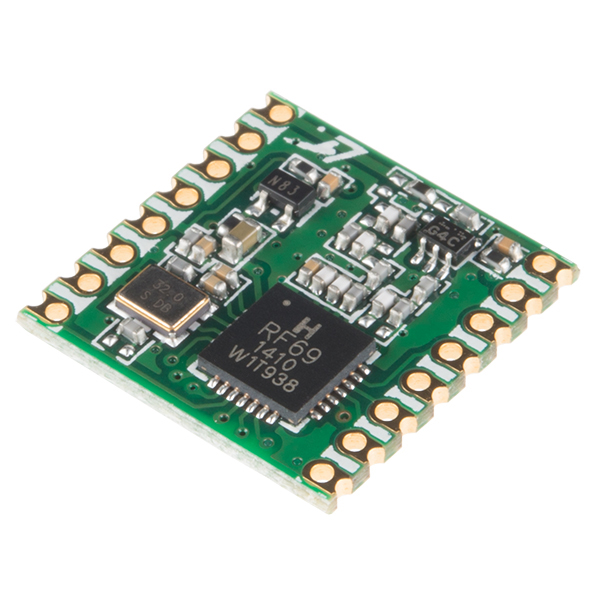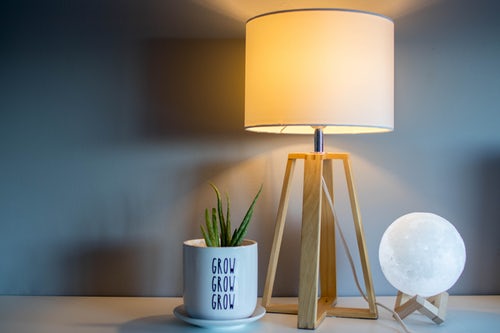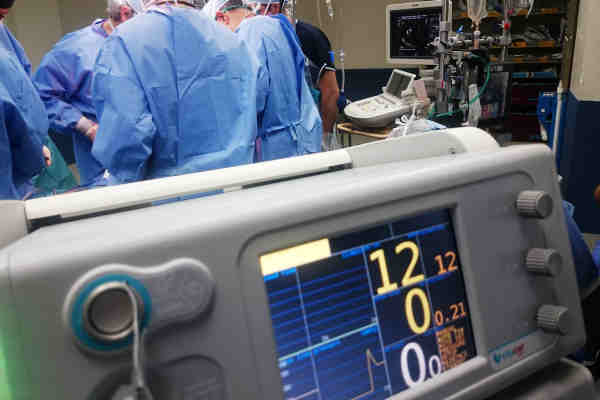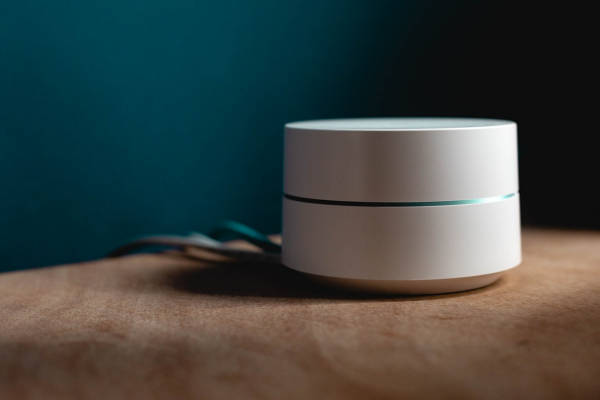FCC Certification Costs Guide

What is the cost for the FCC Certification of my product?
One of the most common questions we receive for FCC Testing is how much will testing cost for the “FCC Certification” of my product.
We pride ourselves on our pricing, and generally speaking our pricing will be around 50% lower then your local lab due to our testing volumes and extensive partner network of accredited laboratories with excess testing capacity; however, there are a few variables to consider in how much your actual product testing will cost.
1: What type of testing do you require for your FCC Certification?
If you go back to our Guide to FCC Part 15 Testing, you’ll find that there are two major types of FCC Part 15 testing.
Many of our clients ask for an “FCC Certification” when in fact their product really only requires an FCC SDoC Under Part 15. So the first question to lead up to the cost of your required FCC testing is first to define what type of testing you need.
FCC Certification Costs for Intentional Radiators / Chip-Down Designs

The FCC Part 15 Certification is the most strict type of testing that can be conducted for your product. An FCC Certification is used primarily for “chip-down” wireless designs such as a Bluetooth SoC like the Nordic family of BLE chips, LoRa transceivers from Semtech, or a custom analog radio of your design.
A quick rule of thumb is that if your product does not use an FCC certified module but has wireless functionality, chances are you need a full FCC certification.
For more information on whether your device requires an FCC Certification, the definitive source of information is 47 CFR Part 15 - RADIO FREQUENCY DEVICES which as we discussed in our guide to FCC Part 15 Testing is the starting point for any product analysis for FCC testing.
For the formal FCC certification, we’ll need to test the radio functions to confirm they meet the FCC’s operating guidelines and transmit within the correct frequency bads, operate under the transmit power requirements, and also do not transmit and dwell too long.
Certain types of radios require more lab testing then others (for example 900MHz frequency hopping radios, require much more extensive testing and documentation then a simple 433MHz transmitter). As multiple radios are introduced into the design, there become requirements to meet the FCC ever-changing co-location requirements.
Many of our client designs feature multiple radios in the end project. Depending on the type of radio technologies and quantity of radios involved in the project, the testing scope for the FCC certification can rapidly increase. We need to test each radio individually to ensure it meets the required Part 15C testing as under 47 CFR Subpart C - Intentional Radiators
In addition to the Part 15 C testing, we’ll also be required to not only perform the radio measurements of your product but we also need to conduct general EMC emissions.
One additional item of testing, is if your device is connected to the AC mains, we’ll also need to perform the conducted emissions as under 47 CFR § 15.107 - Conducted limits..
Another major determination in the FCC certification costs is also whether your product is considered a mobile or portable device, and what type of SAR testing requirements there will be.
The FCC defines a portable product as a device which would be commonly used by an end user at a distance less than then 20 centimeters from their body. Cell phones are a common example of a portable device under the FCC’s rules.
As the inverse of that the FCC defines a mobile device as a device which is commonly used by an end user at distance greater then 20 centimeters. A Wi-Fi router is a common example of a mobile device under the FCC’s rules.
For both mobile and portable devices, the FCC restricts the amount of radiofrequency energy (RF) that consumers can be exposed too. For devices which are classified as portable, you’ll be required to perform more extended testing. The limits that FCC follows is called the Specific Absorption Rate (SAR), which is an averaged measurement of the amount of RF energy that is absorbed by a human body. The FCC has a great introductory write-up to SAR as it relates to cell phones and other portable devices.
After the testing is completed, we’ll need to compilate and review your technical files for the project. This will include us requesting and reviewing the below documents:
- Schematics
- BOM
- PCB Silkscreens / Component Designators
- Description of Operation Document
- Block Diagram
- Owners Manual
- ID Label Drawing
- Written Instructions & Firmware For Operating Device in Wireless Test Modes
As part of our all inclusive project pricing, unlike many other test labs our projects include compliance support to assist you in preparing the required documents and also prepping the firmware for your devices.
One large component of the FCC certification costs is the actual filing fees that need to be paid to the FCC & TCBs for the formal filing of your application. This item alone can be thousands of dollars depending on the complexity of the filing.
Internally, we’ve found that 70% of the effort in the an FCC certification is not the actual lab testing but preparation for the actual lab testing and then post-project support in terms of getting documentation approved and ready for submission to the FCC. Our unique approach to FCC testing, is geared towards supporting product designers holistically from the start to end of the project.
So in order to determine your FCC certification costs it can be difficult to provide a blanket number: we’ll need to evaluate what radios are being used in your project, what type of other Part 15 EMC testing is required, what is the use case of the product in terms of SAR and the mobile / portable usage, and then evaluate what type of filing documenation that will need to be provided for your project.
“FCC Certification” Costs for Intentional Radiators / Modular Systems

As we discussed in our guide to FCC modular usage, using an FCC certified module can greatly reduce your testing costs.
One common misnomer though is that if you are using an FCC certified module then you will also require an FCC certification on your end product.
For most end products which are simply implementing one FCC certified module, you actually will be testing under the FCC SDoC as your module already has the grant of authorization from the FCC.
Many customers contact us requesting an “FCC Certification” but in cases where modules are being used typically only a Supplier’s Declaration of Conformity (SDoC) will be required.
However, as an intentional radiator the FCC has a long list of required testing that an end of user of modules must meet.
Similar to a de-facto FCC certification, the cost of the FCC SDoC testing for your modular design will largely hinge on what types of modules are being used and what types of prior testing they have had conducted.
For example, if you examine the grant authorization of your particular FCC module you will often find that the module is authorized to be used in mobile application (if you remember a mobile device is one which is operated at a distance greater then 20 cm from an end user).
Most modules are only tested under mobile conditions because the end-host device enclosure can have a great impact on the SAR emissions for a portable device.
In cases where a module needs to be tested under portable conditions, the testing costs will increase as we will need to conduct SAR testing on the end product. In addition, many module manufacturers do not provide native test modes to their underlying firmware so it can be quite challenging to get the required firmware access to your module in order to run the testing.
As with the portable vs. mobile grant condition, you’ll also find that modules are only approved with for use when they are not co-located with other intentional transmitters. In order to use two different modules, we’ll typically need to perform co-location testing to demonstrate that the modules can be operated safely next to each other.
In some cases, we’ve found that it actually cost an end customer more to go through the required FCC SDoC testing for their modules as opposed to just simply using a chip-down design and going through a formal FCC certification.
So like the FCC certification, the costs to FCC test your modular based intentional radiator is also going to depend on the number of modules being implemented in the host device, the types of radios in the device, the portable / mobile use case of the device as it relates to SAR testing, and the co-location limitations that are part of the modules grant of authorization.
Complex wireless designs based on modules is one of our specialities – we’ve worked on hundreds of designs based on modules and have experienced every potential testing scenario and pitfalls that can come with using FCC modules.
As former designers in our opinion, we’d like to see the FCC simplify the treatment of modules as it can be quite confusing as to what type of testing is ultimately required. Additionally, we feel that module manufacturers do not provide designers enough compliance support in terms of understanding their testing requirements and then providing easy to use tools in order to test the modules.
The FCC in recent years has moved to simplify and standardize testing requirements for FCC certified modules, but in our experience we’ve found actually that CE RED Modular Testing is much more logically consistent.
FCC Certification Costs for Unintentional Radiators

(Note, notice that “FCC Certification” is not in quotes! Yes, you can actually have an unintentional radiator FCC certified if you wanted too, and there is one specific case where it’s becoming more common).
This the final possible category for an FCC Certification, and it’s also the most uncommon.
The vast majority of unintentional radiators simply need to be tested under Part 15 / SDoC.
However, there is the option that any manufacturer of an unintentional radiator could file for an FCC certification.
Since 2019 with the introduction of the Supplier’s Declaration of Conformity process, one common reason that manufacturer’s file for the full certification is because they do not have a USA based Responsible Party, as per 47 CFR § 68.324 - Supplier’s Declaration of Conformity requirements.
Our clients who have been impacted by the Responsible Part requirements are primarily non-USA companies who wish to sell their products in the USA. A Responsible Party must be a USA based entity / person who resides in the USA. In cases where foreign companies cannot provide a Responsible Party, if they go through the FCC certification process they do not need to provide a Responsible Party.
In terms of FCC testing costs for unintentional radiators, there can be variation in the costs depending on the testing complexity of the device.
One thing to consider in terms of FCC testing costs for unintentional radiators is how complex is the device that needs to be tested:
For example, if you have a complex network switch with multiple IO ports and different configurations and require a complex software setup in the lab the costs to perform the testing will be much higher then say a household lamp with a single on / off switch.
Similarly if the device is powered by the AC mains, we’ll need to perform conducted emissions tests as well as the radiated emissions testing as under FCC Part 15.
In general, your basic unintentional radiator will not require an FCC certification; however, for certain foreign companies this is becoming a greater issue as they are unable to meet the Responsible Party requirements under the SDoC.
So How Much Does the FCC Certification Cost?
Unfortunately, there is not a straight answer as to one blanket rule that will ultimately determine how much your end product’s FCC certification will cost.
FCC Certification costs are driven by the below factors:
- Type of Radios Being Used in System (Non-Modular or Modular)
- Quantity of Radios Being Used in System
- Required Amount of Testing as Per Each Type of Radio
- Use Case of Product (ie. Portable vs. Mobile Usage as it relates to SAR testing)
- For modular systems, what type of modular limitations are there as it relates to co-location requirements
- Complexity of device setup
- Status and completion of filing documentation for the FCC
- Filing Fees to the FCC / TCB
If you are currently working on a project that will need an FCC certification Request a Quote from us on your current product and we will get back to you right away with comprehensive pricing and ask the right questions to determine the full scope of required testing.
In any given month we are working on dozens of wireless projects, and we can provide quick and informal pricing very quickly based on the above variables for your FCC certification testing.
While we can’t give you an exact price as to how much it will cost to test your system definitively in a blog post, what we can tell you is that our average customer pays less then 50% of other competing quotations from labs. If you are looking to work with an expert team of compliance engineers who fully know the in-s and outs of the FCC certification process, we are certain you will be very pleased with our comprehensive all-inclusive pricing for your next FCC certification project.
We make compliance testing easy.
Submit your project details today for a no-cost quote
Request Quote

